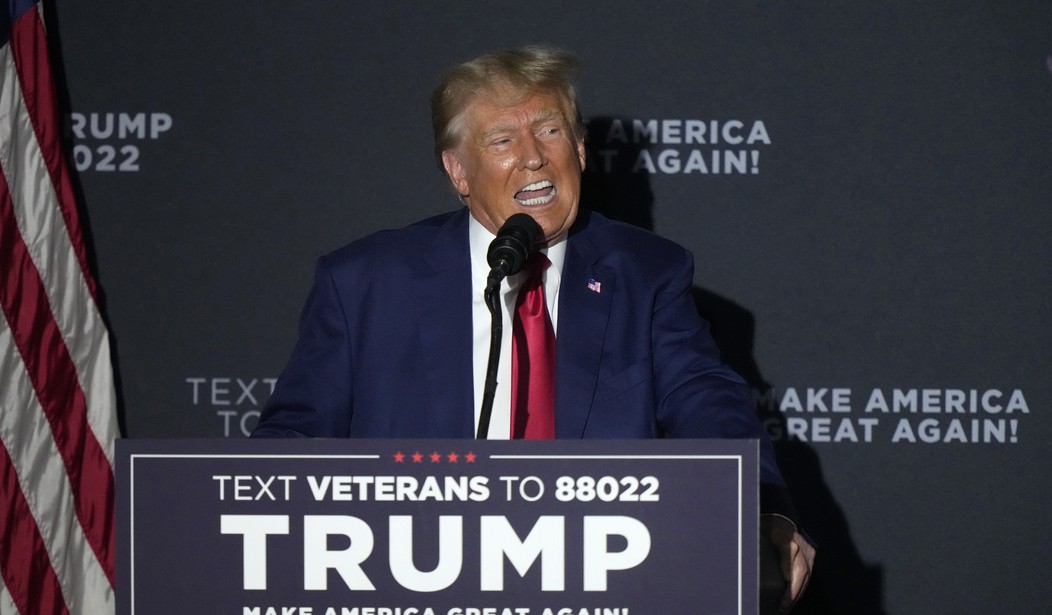The Georgia indictment against former President Donald Trump is around 100 pages, but the legal gurus at Powerline blog read it and walked away with one key question: where’s the beef? Actually, our friends at Hot Air came up with that question, but John Hinderaker, an attorney, would have agreed, adding that there isn’t much criminality alleged in the indictment. It’s a liberal tirade masked as law, which you knew, but even the most explosive portions, which the establishment media will harp on in the coming days, aren’t crimes. The fake elector bit, for example, isn’t a smoking gun at all (via Powerline):
The indictment sets out in detail statements that were made by the defendants about voter fraud in Georgia and other states, all of which are alleged to be false. Of course, in the wake of the election, there were many claims of voter fraud. Some of these proved to be true, I think, while others proved to be incorrect. But so what? It is not, in general, a crime to make false statements. If it were, Washington would be a ghost town.
The second main thrust of the indictment involves the fact that Trump and his “co-conspirators” arranged for an alternate slate of pro-Trump electors to be identified in Georgia. The indictment recites efforts by Trump and others to convince officials in Georgia and other states to certify his alternate slates, or otherwise to reverse the apparent results of the election in a particular state. These alternate electors were selected, as White House adviser Stephen Miller explained, to preserve Trump’s rights in the event that one or more of his legal challenges succeeded:
“As we speak, today, an alternate slate of electors in the contested states is going to vote and we’re going to send those results up to Congress,” he continued. “This will ensure that all of our legal remedies remain open. That means that if we win these cases in the courts, that we can direct that the alternate state of electors be certified.”
I don’t think that such alternate elector slates are unprecedented, and in any event there is nothing illegal about identifying such would-be electors, however futile it might be.
[…]
“Overt Act 6” is a typical example of these allegations:
On or about the 21st day of November, 2020, MARK RANDALL MEADOWS sent a text message to United States Representative Scott Perry from Pennsylvania and stated, “Can you send me the number for the Speaker and the leader of PA legislature. POTUS wants to chat with them.” This was an overt act in furtherance of the conspiracy.
But again, so what? Taking legal steps to try to overturn the apparent result of an election is not illegal. That is what Al Gore did. It is what Stacey Abrams did. It is how Al Franken got into the Senate. In Trump’s case, his legal arguments were uniformly weak. But it is not a crime to make a bad legal argument. If it were, the U.S. would be suffering from a shortage of lawyers.
Recommended
Mr. Hinderaker finds some felonious allegations, but they have nothing to do with Trump. One involved a perjury allegation, while the other centered on access to a voting machine. If true, what’s been reported about these incidents are crimes, but Hinderaker added that the infractions don’t call for impaneling a grand jury.
On some counts, the criticism from the January 6 indictment from Special Counsel Jack Smith has leeched into these charges: they’re attacks on free speech. And, as noted above, asking for a review of the votes or a recount isn’t illegal, though the new Democratic Party line is that pursuing such a course of action is a crime when it is most decidedly not.

























Join the conversation as a VIP Member